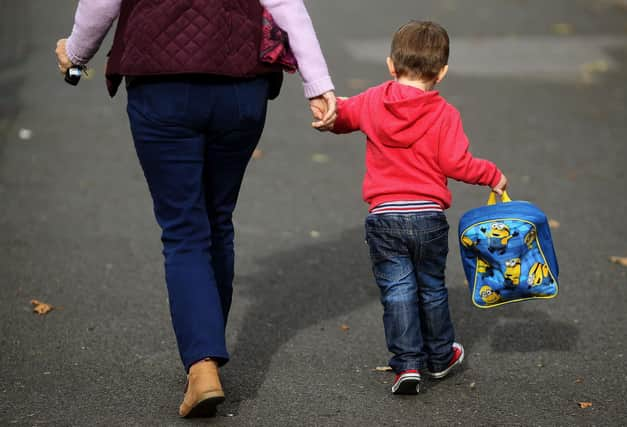A quarter of children in County Durham live in child poverty, new research has revealed


The End Child Poverty Coalition, with Loughborough University, has published an analysis of data from the Government that tracks child poverty across Britain before housing costs are taken into account.
Between 2014/15 and 2018/19, the North East of England saw child poverty numbers rise by 6.5% – the highest rise in England – with all council areas in the region also seeing individual increases.
Advertisement
Hide AdAdvertisement
Hide AdThe figures are based on government estimates using family income data.
In 2018/19, the worst hit area in the North East was Middlesbrough where more than a third (37%) of children were living in poverty closely followed by Newcastle (28%), Hartlepool (27%) and South Tyneside (26%).
In County Durham, 22.3% of children were living in poverty – a rise of 5.8% since 2014/15.
Durham County Council (DCC) bosses have stressed they have a range of services in place to support families facing financial challenges.
Advertisement
Hide AdAdvertisement
Hide AdDCC’s cabinet member for social inclusion, Coun Angela Surtees, added local authorities need more funding support to tackle child poverty in the long-term.
“We have put in place a number of actions to try to support families facing significant challenges, including increased funding for welfare support,” she said.
“We have also made £1.5 million available to support around 200 local projects during the coronavirus pandemic, many of which are providing vital support to families during this difficult time.
“However, we recognise that child poverty is a longer-term issue which needs long-term resources to tackle it.
Advertisement
Hide AdAdvertisement
Hide Ad“Having faced unprecedented cuts over recent years, local authorities need to be adequately resourced to address the issue and provide children with more equal opportunities.”
The End Child Poverty Coalition is now calling on the Government to commit to a comprehensive strategy to end child poverty as it plans the nation’s recovery from coronavirus, which campaigners fear could draw more families below the poverty line.
Groups have also called for the Government to increase household income for struggling families.
Director of policy and campaigns at Action for Children, Imran Hussain, said: “We may all be experiencing the storm of coronavirus together, but we are not all in the same boat.
Advertisement
Hide AdAdvertisement
Hide Ad“Children in the North East are some of the most exposed to the devastating economic consequences of this crisis and are at severe risk of being swept deeper into poverty.
“Families who were already struggling to keep their heads above water are now living in fear that they can’t afford to keep their children and babies warm and well fed.”
In a statement on the figures, Easington MP Grahame Morris described child poverty as a “blight on our society.”
“It is the denial of life opportunities, which entrenches disadvantage and widens inequality,” he said.
Advertisement
Hide AdAdvertisement
Hide Ad“We should be outraged that people working day in, day out, cannot earn enough to lift their family out of poverty.
“Child poverty is a political choice. Unless the Government change course, they will repeat the same failed policies of the last decade.
“These figures are shameful, and the Government must set out a clear strategy to reduce and eradicate child poverty.”
A Government spokesman said: “This government understands the challenges many are facing which is why we injected £6.5 billion into the welfare system, including increasing Universal Credit and Working Tax Credit by up to £1,040 a year, as well as rolling out income protection schemes, mortgage holidays and additional support for renters.
Advertisement
Hide AdAdvertisement
Hide Ad“We currently spend a record £95 billion a year on our safety net welfare system and remain committed to supporting the most vulnerable in society throughout the current emergency and beyond.”
Recent analysis from the Office for National Statistics, carried out between April 17-27 2020, shows just under 1 in 4 adults (23%) said coronavirus was affecting their household finances.
The most common impact in this group was reduced income and nearly half said they had needed to use savings or borrow to cover living costs.